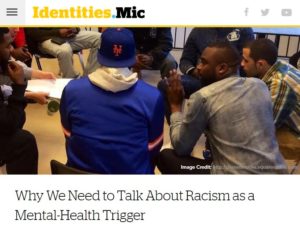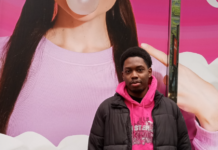“Some activists have been able to move forward and continue the work because they have access to therapists, healers, spiritual practitioners and networks of friends,” Black Lives Matter activist Darnell Moore writes for Mic. “But some suffered traumas they were unable to overcome.”
-
When faced on the battlefield with a numerically superior enemy, one must attempt to divide his enemy into smaller, more easily dispatched opponents – or even more ideally, divide them against one another, and have them defeat each other without ever drawing your sword.
Never in human history has there been a more effective way for tyrants to rule over large groups of people who, should they ever learn to cooperate, would easily throw off such tyranny.
It really doesn’t matter what you call them—the 1%, the elite, the controllers, the masterminds, the shadow government, the police state, the surveillance state, the prison industrial complex they knew they had a problem when the entire population was turning on the cops after decades of “zero tolerance” the war on drugs mass incarceration, their schemes to turn motorists into cash cows at every turn….
They are souless cockroaches but they are not stupid so they made this a racial issue instead of a people vs government oppression issue.
Most people believe it’s racial but its obvious divide and conquer.
-
Hillary Clinton on “Superpredators” https://www.youtube.com/watch?v=j0uCrA7ePno
She was the founding mother of mass-incarceration.
-
It’s a big conflict for those trying to fight both psychiatry AND racism when BLM-type organizations use “mental health” terminology to describe the effects of racism.
There’s a group called Rise Up Georgia that is trying to fight police brutality against Black victims of psychiatry with the slogan “mental illness is not a crime”; they refer in a post on their site to MLK Jr. as having “suffered from mental illness” as a youth, oblivious to how insulting they were being. Serious dialogue is needed here.
-
I liked this article, and the related one reflecting on activist Marshawn McCarrell’s suicide. I’d hope we in the “Mad in America” community can have more discussions with Darnell Moore and his comrades. I too have some quibbles with the language, Oldhead, but I’d hope our discussion could go way beyond that.
What they’re saying is exactly what so many folks here are saying: that there are real reasons to be in mental or emotional distress in this society. And that the demeaning, dismissive, repressive and sometimes terrifying pressures of being black in 21st Century America are big reasons for distress. They certainly reject the idea that they have a brain disease or that the answer is more psychotropic medication.
And face it, King’s distress was real. That famous anonymous letter, sent to him by J. Edgar Hoover’s FBI, trying to bait him into committing suicide was sent for a reason. He had the weight of the world on his shoulders from his mid-twenties; he correctly perceived that he was very likely to be killed by the time he was forty, and it just might be all in vain. Who wouldn’t despair?
Best of all, Moore acknowledges some of the strengths of the black community (which lead to their much lower suicide rate despite their higher exposure to various traumas) and avoids the poisonous cliche that blacks don’t get effective help because the “stigma” is so much worse in their community. There’s no urge to join the more “enlightened” mainstream-white culture in “recognizing” the biological basis of their problems. Last but not least he recognizes that the “services” offered black people are often even more toxic and coercive than what the rest of us get.
Hooray! Let’s talk.















